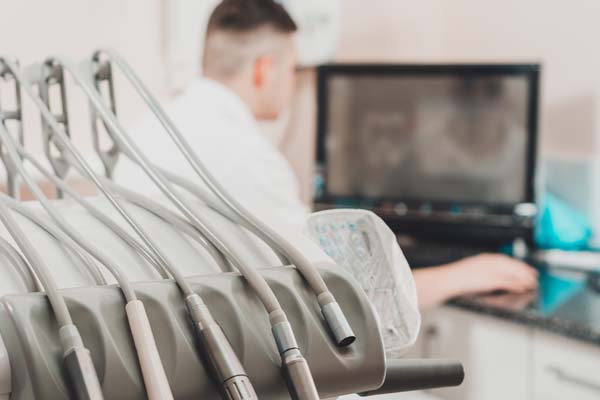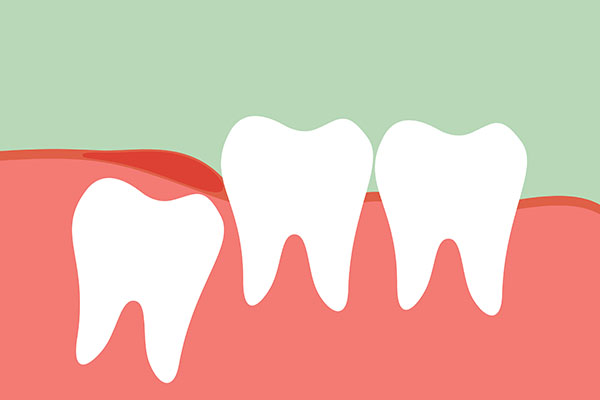How a TMJ Dentist Can Help You

A TMJ dentist is a dentist who is trained in general dentistry but continues their education with a focus on the temporomandibular joint and its disorders. They spend their days treating general dental conditions, however, much of their efforts are spent diagnosing, managing, and treating TMJ disorders.
TMJ dentists are great resources to utilize when suffering from the disorder or related conditions. There are a lot of ways that the condition can be managed and treated in order to reduce, if not eliminate symptoms completely. Continue reading to find out more.
Seeing a TMJ dentist
Below is an overview of how a TMJ dentist can be helpful to those suffering from a temporomandibular joint disorder. This information may be worth reviewing when curious about the role of a TMJ dentist.
The role of a TMJ dentist
A TMJ dentist will be part of the entire process, starting from the diagnosis period, all the way to how the disorder is managed and treated. In some cases, TMJ dentists are able to treat the symptoms so that they are completely eliminated from one's life. In other cases, which is more common, the dentist will come up with a regimented plan that helps manage the disorder, thus reducing symptoms significantly, allowing for a more manageable day-to-day experience.
Depending on the severity of the TMJ disorder, the dentist may or may not be heavily involved. For example, those with severe symptoms may see the dentist on a frequent basis, especially in the beginning as trial and error is done. Trial and error may involve a number of appointments with many different treatments. On the flip side, some individuals may have milder symptoms of TMJ disorder, which may not require seeing the dentist as much. And, in some cases, the first treatment attempted might work out, which means the TMJ dentist will not have to be seen as frequently.
TMJ treatment options
Having an understanding of the different treatments available can be quite helpful as it allows patients to know what to expect. TMJ dentists may recommend any of the following treatments, however, it will depend on a few factors, such as the severity of the condition, how frequent symptoms arise, and one's health history.
Mouthguard or nightguard
Both mouthguards and nightguards can be quite helpful in reducing symptoms that come from TMJ disorder. These oral devices help to reduce the effects of teeth grinding and jaw clenching, both of which typically happen when TMJ disorder is in full effect.
Medications
Some medications can be beneficial when treating TMJ disorder. Muscle relaxers can help to loosen the jaw and temporomandibular joint, thus reducing jaw clicking and locking. Additionally, some TMJ dentists recommend over-the-counter medications to reduce swelling or inflammation that may arise as a result of TMJ disorder symptoms. Of course, over-the-counter medications should only be used for short periods of time and not in excess as there is a potential for long-term damage.
Lifestyle changes
Simple lifestyle changes can be beneficial when treating and managing TMJ disorder. Changing what is consumed on a daily basis can be helpful in relieving jaw and temporomandibular joint dysfunction. Softer foods can be easier on the entire area, as opposed to chewy, tough, or hard items.
Therapies
There are a few different therapeutical options that a TMJ dentist might recommend. Physical therapy is an option to help relax and loosen the jaw and temporomandibular joint. The TMJ dentist may bring on a physical therapist in conjunction with other treatments to help reduce discomfort, tightness, and locking.
Another therapy option is counseling. Some TMJ disorders are related to mental health, such as anxiety or stress, both of which can lead to jaw clenching and teeth grinding. Counseling may help to treat the anxiety or stress, which will ultimately help relieve stress in the temporomandibular joint and jaw.
Talk to a TMJ dentist today
When suffering from TMJ disorder, the best thing to do is consult with a dentist. Individuals can visit their general dentist first and see whether they need to be referred to another specialist. When meeting with a TMJ dentist, unanswered questions or concerns can be properly addressed. Additionally, a thorough evaluation can be done to determine what type of treatment is necessary. There may be some trial and error to figure out what is the most suitable approach for your situation.
To find out more or to get scheduled for an appointment, reach out today.
Request an appointment here: https://www.drelloway.com or call Randal S. Elloway DDS, Inc at (530) 527-6777 for an appointment in our Red Bluff office.
Check out what others are saying about our dental services on Yelp: TMJ Dentist in Red Bluff, CA.
Related Posts
The terms TMJ and TMD are similar but not the same. TMJ stands for temporomandibular joint, which connects the jaw to the skull bones located right in front of the ears. There are certain issues that cause this joint to work incorrectly, and when this happens, it is referred to as TMD, which is short…
The temporomandibular joints (commonly abbreviated as TMJ) are the two joints connecting the jawbone to the skull. While healthy TMJ will work painlessly, the U.S. Department of Health and Human Services estimates that over 10 million Americans suffer from some kind of TMJ disorder. A dentist can often successfully treat TMJ pain with treatments either…
TMD, or temporomandibular joint disorder, can be incredibly discomforting and leads all many to alter the way they live their life on a daily basis. Fortunately, there are treatment options available that are effective. The process of TMD relief starts with visiting the dentist for a proper diagnosis. There are many reasons a person may experience…
TMJ is short for temporomandibular joint and can also refer to temporomandibular joint disorder, a condition in which someone experiences various forms of pain in the jaw and surrounding areas.A dentist or other physician will diagnose TMJ with the dentist's physical exam and/or highly specialized computer equipment. This process will usually review the patient's jawbone,…


